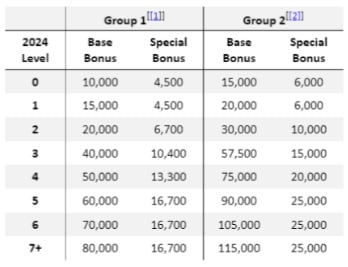Ed.
note: This
article
first
appeared
in
an
ILTA
publication.
For
more, visit
our
ILTA
on
ATL
channel
here.
As
law
firms
transition
from
exploring
artificial
intelligence
(AI)
to
fully
adopting and
implementing
emerging
technologies,
developing
a
deep
understanding
of
data
and
processes
is
imperative.
Buchanan
Ingersoll
&
Rooney
PC
recognized
the
value
of
partnering
with
industry
experts,
like
NetDocuments
and
3545
Consulting,
to
integrate
AI-powered
tools
into
the
firm’s
day-to-day
operations.
Through
this
collaborative
process,
Buchanan
implemented
NetDocuments’
PatternBuilder
and
App
Builder
(powered
by
PatternBuilder
MAX)
to
integrate
advanced
document
automation
and
AI
capabilities
to
streamline
processes
and
create measurable
efficiency
improvements.
Turning
Ambition
into
Action
In
2023,
Buchanan
Ingersoll
&
Rooney
PC
faced
the
challenge
of
staying
ahead
in
a
rapidly
evolving
legal
industry.
Recognizing
the
increasing
importance
of
AI,
automation,
and
data
analytics,
the
firm
launched
a
bold
five-year
strategic
plan
to
transform
its
operations
and
better
serve
client
needs.
This
plan
aimed
to
align
cutting-edge
technologies
with
the
firm’s
workflows,
ensuring
seamless
integration
into
daily
practice.
Scott
Angelo,
the
firm’s
Chief
Information
Officer,
emphasized
the
importance
of
a
holistic
approach:
“We
felt
that
it
was
very
important
to
build
out
centers
of
excellence
that
covered
all
three
areas
[AI,
automation,
data
&
analytics].
Because
we
realized
that
in
order
to
come
up
with
comprehensive
solutions,
we
were
going
to
have
to
use
…
two
to
three
of
those
working
together
to
provide
the
best
solution
possible.”
Angelo
added,
“We
really
doubled
down
on
AI
because
it
was
just
so
new
—
not
just
to
the
legal
industry,
but
to
the
world.”
Under
his
leadership,
Buchanan’s
efforts
to
embrace
AI
have
garnered
significant
attention,
earning
the
firm
recognition
as
one
of
the
“Best
of
the
Best
for
Generative
AI”
in
the
2024
BTI
“Leading
Edge
Law
Firms”
survey.
This
acknowledgment
reflects
more
than
ambition;
it
highlights
the
firm’s
ability
to
translate
innovative
ideas
into
actionable
results.
By
focusing
on
collaboration
and
leveraging
technology
to
address
client
demands,
Buchanan
has
set
a
benchmark
for
what
is
possible
in
legal
technology
innovation.
The
NetDocuments
App
Builder
quickly
became
integral
to
the
firm’s
strategy,
enabling
them
to
automate
complex
legal
workflows
with
AI.
By
generating
documents,
extracting
data,
and
streamlining
legal
processes,
the
tool
delivered
immediate
efficiency
gains
and
allowed
the
firm
to
focus
on
higher-value
work.
A
key
advantage
of
the
App
Builder
and
PatternBuilder
lies
in
their
secure
operation
within
the
firm’s
existing
NetDocuments
environment.
This
integration
ensures
that
all
workflows
and
data
comply
with
the
robust
security
standards
already
established
in
the
document
management
system.
Leveraging
this
trusted
infrastructure,
firms
like
Buchanan
can
confidently
explore
AI-driven
automation
without
risking
sensitive
client
or
case
information.
App
Builder
offers
an
approachable
starting
point
for
firms
new
to
AI.
Its
low-code
interface
and
integration
with
familiar
platforms
reduce
the
learning
curve,
making
the
transition
to
AI
and
automation
more
accessible.
Its
unique
combination
of
security,
usability, and
seamless
integration
positions
App
Builder
as
an
ideal
tool
for
incorporating
AI-driven
technology
into
legal
operations.
To
ensure
they
fully
utilized
App
Builder’s
capabilities,
Buchanan
partnered
with
3545
Consulting,
a
firm
known
for
its
expertise
in
legal
technology,
to
bridge
the
gap
between
vision
and
execution.
Together,
the
team
set
out
to
modernize
workflows,
reduce
inefficiencies,
and
ultimately
enhance
client
service
—
all
while
maintaining
the
highest
data
security
standards.
Time
Savings
and
Consistent
Work
Product
Buchanan’s
journey
started
with
a
focus
on
small,
high-impact
initiatives.
Collaborating
with
3545
Consulting,
they
identified
key
use
cases
where
AI
and
automation
could
deliver
immediate
value,
utilizing
NetDocuments’
App
Builder.
One
of
the
first
successes
was
using
the
Summarize
app,
which
automated
the
process
of
summarizing
legal
documents.
This
tool
quickly
became
a
favorite
among
the
firm’s
attorneys,
saving
hours
of
manual
work.
Buchanan
shifted
from
built-in
apps
to
customizing
a
Litigation
Master
Caption
File
app
that
automates
the
creation
of
master
caption
files
for
litigation
matters.
The
app
leverages
AI
to
extract
caption
data
points
from
an
initial
court
filing
and
automation
to
generate
a
master
caption
file
with
jurisdiction-specific
formatting.
The
master
caption
file
can
then
be
used
as
the
starting
point
for
all
court
filings,
ensuring
consistency,
accuracy,
and
proper
formatting,
all
while
streamlining
the
drafting
process.
Outcomes:
-
1500+
practice
assistant
and
paralegal
hours
saved
annually
(approx.
$80,000
value)
-
Risk
avoidance
and
reputational
benefit
via
accurate,
consistent
automation
-
Improved
consistency
for
10,000+
court
filings
annually
Buchanan
also
created
a
Durable
Power
of
Attorney
App
to
streamline
the
drafting
process
for
durable
powers
of
attorney.
The
app
guides
users
through
client-specific
questions,
such
as
selecting
appointees,
defining
their
powers,
and
determining
whether
the
document
should
take
effect
immediately
or
upon
incapacity.
By
automating
this
process,
the
app
reduces
drafting
time
from
hours
to
minutes,
enabling
attorneys
to
focus
on
each
case’s
unique
complexities.
Ensuring
that
measurements
were
in
place
to
access
each
app’s
value
was
critical
to
Buchanan’s
approach.
The
firm
worked
with
3545
Consulting
to
develop
a
simple
yet
effective
solution:
by
integrating
a
counter
in
each
app’s
data
table,
the
firm
could
track
the
app’s
usage.
This
tracking
system
allowed
them
to
quantify
the
time
savings
and
other
benefits
generated
by
each
app.
For
example,
one
app
saved
the
firm
five
hours
of
attorney
time
each
time
it
ran.
Its
utilization
increased
productivity
and
improved
the
consistency
and
quality
of
the
final
documents.
Other
apps
provide
less
tangible
benefits,
such
as
reducing
errors
and
ensuring
compliance
with
standard
formats
across
all
outputs.
It
is
also
easier
for
attorneys
to
adopt
since
the
apps
are
built
within
the
familiar
NetDocuments
platform.
Attorneys’
familiarity
with
the
existing
platform
reduced
the
learning
curve,
making
AI
and
automation
feel
less
intimidating
and
encouraging
greater
adoption
across
the
firm’s
practice
areas.
Turning
Use
Cases
into
Working
Apps
Buchanan’s
success
was
not
an
accident
—
it
stemmed
from
a
well-defined
process
critical
to
the
success
of
implementation
and
execution.
The
collective
team
followed
these
essential
steps
for
app
development:
-
Identify
and
Prioritize
Use
Cases:
Workshop
with
attorneys
and
staff
to
identify
tasks
ripe
for
automation,
such
as
repetitive
document
drafting.
“We
started
with
smaller
groups
to
get
quick
wins
and
build
excitement,”
said
Jared
Gullbergh,
Director
of
Practice
Solutions
and
IG
at
Buchanan.
-
Define
App
Requirements:
Collaboratively
create
clear
goals
and
workflows.
PatternBuilder’s
low-code
interface
allowed
for
quick
iterations
and
user
involvement.
-
Leverage
Pre-Built
Studio
Apps
and
Templates:
Customize
templates
to
match
the
firm’s
needs.
This
step
reduced
development
time
and
increased
overall
value.
-
Incorporate
AI
and
Automation:
Design
apps
to
output
consistent,
high-quality
documents
by
combining
AI-driven
data
extraction
with
automation.
-
Test
and
Iterate:
Involve
end
users
early
to
refine
solutions.
-
Deploy
and
Train:
To
foster
adoption,
create
training
sessions
for
end
users
to
ensure
they
understand
the
apps’
value
and
functionality.
-
Measure
Success:
Track
usage
and
time
savings
to
quantify
impact
and
identify
additional
opportunities
for
improvement.
“The
apps
available
in
ndMAX
make
it
easy
to
iterate,”
Gullbergh
noted.
“We
can
adapt
quickly
to
meet
new
needs,
which
is
critical
in
a
fast-changing
environment.”
Building
a
Long-Term
Strategy
Through
Collaborative
Thought
Leadership
Buchanan
Ingersoll
&
Rooney’s
thoughtful,
collaborative
approach
to
AI
can
deliver
lasting
results.
“We’ve
only
scratched
the
surface
of
what’s
possible,”
said
Gullbergh.
“With
NetDocuments’
AI
capabilities,
we’re
not
just
keeping
up
—
we’re
leading.”
Beyond
the
immediate
wins,
Buchanan’s
collaboration
with
NetDocuments
and
3545
Consulting
set
the
stage
for
sustained
success.
By
equipping
Buchanan’s
IT
team
to
develop
and
maintain
apps
independently,
the
firm
ensured
it
could
scale
its
automation
capabilities
while
still
having
access
to
external
support
from
3545
when
needed.
The
knowledge
gained
from
this
collaborative
project
is
incredibly
valuable
for
other
firms
transitioning
from
the
theoretical
ideation
phase
to
the
practical
implementation
stage
of
AI-powered
technology
deployment.
The
right
technology,
a
strategic
approach,
and
a
focus
on
measurable
outcomes
can
transform
legal
workflows.
Buchanan’s
journey
is
an
inspiring
example
of
embracing
the
future
while
prioritizing client
needs
and
upholding
firm
values.
As
legal
technology
evolves,
the
firm’s
proactive
approach
is
a
valuable
case
study
for
other
firms
looking
to
implement
AI
and
automation.
The
lessons
learned
from
this
collaboration
—
such
as
the
importance
of
having
an
intelligent
DMS,
the
proper
training,
measuring
success,
and
building
internal
and
external
capacity
—
offer
a
roadmap
for
firms
seeking
to
modernize
their
workflows
while
delivering
value
to
their
clients.
Scott
Angelo
is
Buchanan
Ingersoll
&
Rooney
PC’s
Chief
Information
Officer.
He
handles
the
design,
implementation,
and
management
of
information
technology
and
risk
management
platforms.
Scott
manages
the
firm’s
IT
team
to
further
develop
technologies
to
drive
creative
solutions
for
the
firm
and
its
clients.
He
brings
more
than
30
years
of
experience
to
the
firm’s
high-performing
culture
and
efficient
client
service
through
an
innovative
digital
infrastructure.
Scott
was
recognized
by
the
Pittsburgh
Technology
Council
as
the
winner
in
the
2024
CIO
of
the
Year
Awards
and
by
The
Legal
Intelligencer
as
a
Law
Firm
Innovator
Finalist
for
the
2024
PA
Legal
Awards.
Jared
Gullbergh
serves
as
Buchanan
Ingersoll
&
Rooney
PC’s
Director
of
Practice
Solutions
and
Information
Governance.
Jared
partners
closely
with
the
firm’s
legal
and
government
relations
practices
to
deliver
technology
and
data-driven
solutions
to
maximize
process
efficiencies,
profitability
and
to
deliver
unique
client-value.
He
also
directs
and
oversees
the
Records
and
Information
Governance
functions
of
the
firm.
Jared
brings
to
bear
more
than
19
years
of
IT
and
information
governance
experience
in
the
full-service
legal
industry.
Nancy
Griffing
is
a
seasoned
legal
technology
consultant
and
a
driving
force
at
3545
Consulting,
where
she
combines
decades
of
industry
experience
with
a
forward-thinking
approach
to
innovation.
With
a
deep
understanding
of
the
legal
sector’s
unique
challenges,
Nancy
has
become
a
thought
leader
in
the
adoption
and
integration
of
artificial
intelligence.
She
specializes
in
helping
law
firms
leverage
AI
to
enhance
existing
tools,
streamline
workflows,
and
drive
efficiency
at
scale.
As
a
Partner
at
3545
Consulting,
Nancy
empowers
firms
to
achieve
transformative
results
while
navigating
the
complexities
of
modern
legal
practice.
Michael
Owen
Hill
has
nearly
two
decades
of
experience
in
the
legal
tech
industry
in
roles
ranging
from
product
management
to
product
marketing
to
product
portfolio
strategy.
He
has
worked
with
small
firms,
corporate
legal
departments
and
the
world’s
largest
law
firms
to
advance
client
development,
legal
research
and
know-how,
financial
and
practice
management
and
legal
document
management
goals.
As
Director
of
Product
Marketing
at
NetDocuments,
Michael
focuses
on
helping
customers,
partners
and
employees
navigate
the
complexities
of
the
rapidly
evolving
legal
tech
landscape.
 Jordan
Jordan

















